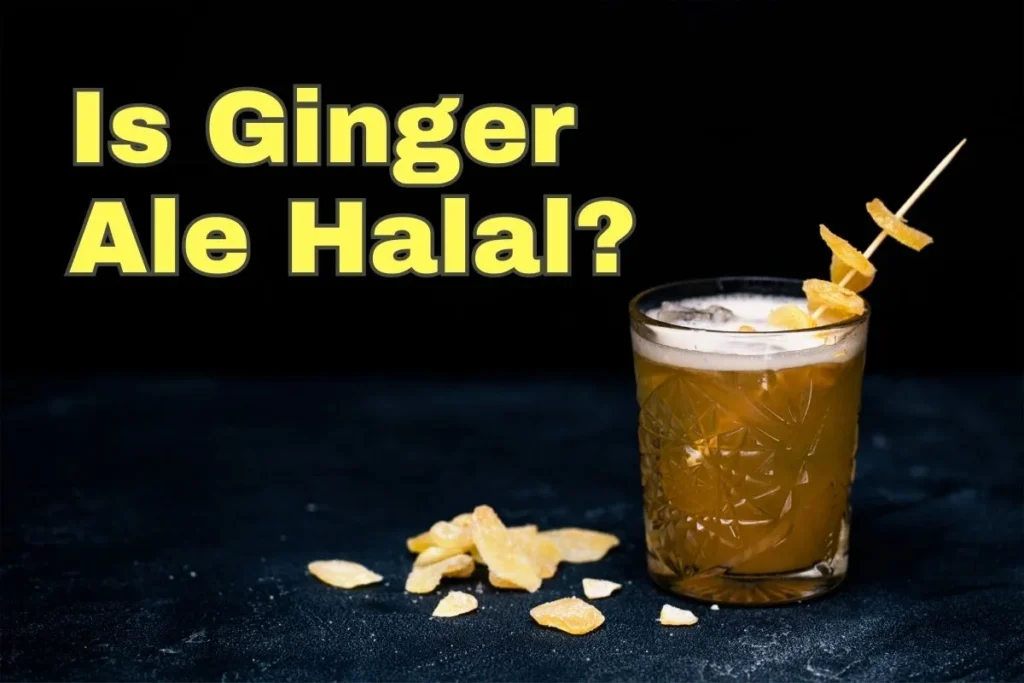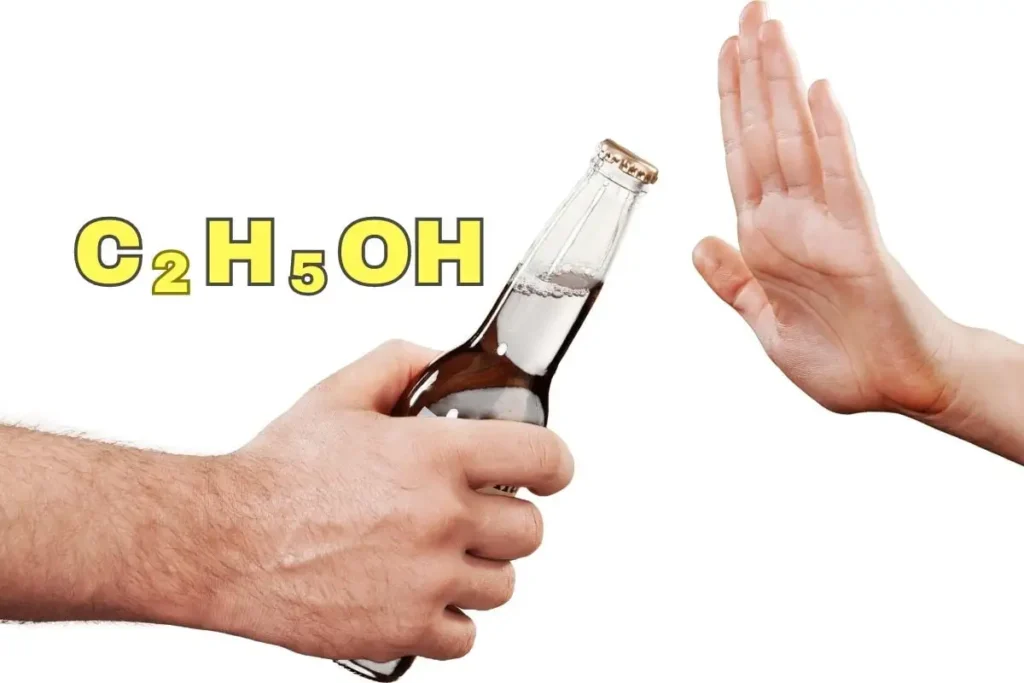As a global community that spans diverse cultures, religions, and traditions, it’s essential to acknowledge the unique dietary requirements of different groups. One such requirement among many Muslim populations is the need for food and drink products to meet Halal guidelines.
This means ensuring that no trace of pork, blood, alcohol, or carnivorous animals without external signs of slaughtering (Zabiha), in these items. So, how might you quench your thirst during Ramadan or any other time while adhering to these regulations? Is Ginger Ale Halal? Keep reading as we delve into this refreshing topic!
Key Takeaways
| 📌 Traditional Ginger Ale is generally considered halal (permissible) as long as the fermentation process does not result in an alcohol content exceeding the permissible limit of 0.5%, as set by Fatwa. |
| 📌 Islamic dietary guidelines, based on the Quran and Hadith, emphasize the consumption of foods and drinks that are halal (permissible) and free from prohibited substances like alcohol, pork, and blood. |
About Ginger Ale
Ginger ale is a fizzy and refreshing soda that has become a popular choice among beverage enthusiasts. With its delightful pop of bubbles and distinct ginger flavor, ginger ale offers a unique taste that sets it apart from other carbonated beverages.
While it is commonly enjoyed on its own, ginger ale also serves as a versatile mixer for a variety of drinks. Whether you’re creating mocktails or mixed drinks, ginger ale adds a delightful twist to summer drinks and non-alcoholic cocktails.
When it comes to selecting a brand of ginger ale, there are several options to consider. Canada Dry and Vernors are well-known names in the industry, offering their classic ginger ale flavors. For those looking for unique and artisanal choices, Red Ribbon by Natrona Bottling Company provides a mint-infused twist, while Zevia offers a zero-sugar option. These brands, along with others like Fresca, offer a range of choices to cater to different preferences.
One of the advantages of ginger ale is its ability to provide a flavorful experience without the need for alcohol. As a non-carbonated beverage, ginger ale offers a refreshing alternative to those seeking alcohol-free drink options. Its versatility allows it to be enjoyed on its own as a soft drink or as a key ingredient in nonalcoholic cocktails.
The effervescence of ginger ale adds a sparkling touch to mocktails, providing a delightful sensation for those looking to enjoy a refreshing beverage without alcohol.
Ginger Ale Recipe
Making your own ginger ale at home is a rewarding experience that allows you to customize the flavor to your liking. To start, here are what you’ll need :
- Fresh ginger root
- Yeast
- Sugar
- Water
- A touch of lemon or lime juice
To make ginger ale at home, you can start by making ginger syrup. This can be done by grating fresh ginger and simmering it with sugar and water until the sugar has dissolved. Once the syrup has cooled, strain out the ginger solids.
Then, mix the ginger syrup with freshly squeezed lemon juice and filtered water. Add a small amount of active dry yeast or brewer’s yeast to the mixture and let it ferment for a few days. The carbonation will come from the yeast fermentation.
You can adjust the fermentation time to control the alcohol content. If you prefer a non-alcoholic version, you can skip the fermentation process and mix the ginger syrup with seltzer water instead
Halal and Haram Identification
The principles guiding Islamic dietary laws can be traced back to two primary sources – the holy book of Muslims, the Quran, as well as traditions established by Muhammad ﷺ (peace be upon him), also referred to as hadith. Generally speaking, most items are considered acceptable for consumption, called halal, except when there is proof to indicate otherwise based on religious injunctions given by the prophet himself.
This topic has generated discussions among scholars who base their arguments on the Quran in the following verse :
يَـٰٓأَيُّهَا ٱلنَّاسُ كُلُوا۟ مِمَّا فِى ٱلْأَرْضِ حَلَـٰلًۭا طَيِّبًۭا وَلَا تَتَّبِعُوا۟ خُطُوَٰتِ ٱلشَّيْطَـٰنِ ۚ إِنَّهُۥ لَكُمْ عَدُوٌّۭ مُّبِينٌ
“O humanity! Eat from what is lawful and good on the earth and do not follow Satan’s footsteps. He is truly your sworn enemy.”
For the first boundary of haram status, we can clarify in accordance with verse 195 in chapter 2 of the Quran, consuming anything harmful to one’s physical form contradicts the directive set forth, which subsequently classifies such elements as “haram” or impermissible.
وَأَنفِقُواْ فِي سَبِيلِ ٱللَّهِ وَلَا تُلۡقُواْ بِأَيۡدِيكُمۡ إِلَى ٱلتَّهۡلُكَةِ وَأَحۡسِنُوٓاْۚ إِنَّ ٱللَّهَ يُحِبُّ ٱلۡمُحۡسِنِينَ
“And spend of your substance in the cause of Allah, and make not your own hands contribute to (your) destruction; but do good; for Allah loves those who do good.
Furthermore, reference may be made to chapter 5 verse 3 of the Quran, which delivers greater detail regarding food constraints applicable to devout followers of Islam.
حُرِّمَتْ عَلَيْكُمُ ٱلْمَيْتَةُ وَٱلدَّمُ وَلَحْمُ ٱلْخِنزِيرِ وَمَآ أُهِلَّ لِغَيْرِ ٱللَّهِ بِهِۦ وَٱلْمُنْخَنِقَةُ وَٱلْمَوْقُوذَةُ وَٱلْمُتَرَدِّيَةُ وَٱلنَّطِيحَةُ وَمَآ أَكَلَ ٱلسَّبُعُ إِلَّا مَا ذَكَّيْتُمْ وَمَا ذُبِحَ عَلَى ٱلنُّصُبِ
“Forbidden to you are carrion, blood, and swine; what is slaughtered in the name of any other than Allah; what is killed by strangling, beating, a fall, or by being gored to death; what is partly eaten by a predator unless you slaughter it; and what is sacrificed on altars.“
Additionally, certain ingredients found in foodstuffs might become unlawful owing to the presence of contaminants designated as ‘Haram‘ under Islamic jurisprudential regulations. One illustration entails intoxicants classified as khamr, including substances capable of inducing mind-altering effects.
These encompass a range of alcoholic liquids, comprising but not restricted to wine, beer, brandy, cordials, etc., and foodstuffs whose ethyl alcohol concentration surpasses the permissible levels specified by the Fatwa.
Our objective in assessing the halal compatibility of Ginger Ale involves evaluating its constituents. By thoroughly inspecting each component in its composition, we seek to verify that nothing violates Islamic dietary laws.
Through meticulous research and attention to detail, we hope to provide valuable information and support for those looking to align their sustenance practices with their faith.
Ginger Ale Ingredients
The ingredients that are commonly used to make traditional Ginger Ale are :
- Fresh ginger root
- Yeast
- Sugar
- Water
- Lemon or lime juice
Based on the contents listed above, it appears that these materials meet the benchmarks for halal according to Islamic Shari’ah law. Consequently, these components satisfy the criteria for tayyib (pleasant), as mandated by the Quran and the Sunnah.
Is Ginger Ale Halal or Haram?
Traditional Ginger Ale is considered halal (acceptable) as long as you don’t take the fermentation process into alcohol exceeding the limit (0.5%) set by Fatwa.
Conclusion
Ginger Ale can be a refreshing choice, offering its distinct taste and effervescence. However, ensuring that any alcohol used in creating the soft drink abides by Islamic guidelines and remains below the permitted amount (less than 0.5% ABV) is pivotal for deeming it lawful according to the fatwa we’ve discussed earlier.
Allahu A’lam (Allah Knows Best)
FAQ
Is ginger ale like beer?
While traditional ginger ales are alcoholic, modern versions are usually non-alcoholic carbonated beverages that contain sugar and sometimes artificial flavors to enhance their sweetness and tartness.
Can kids drink ginger ale?
Ginger ale is not recommended for children 11 and under.
Why is ginger ale good when sick?
Ginger, a close relative of turmeric and cardamom, is widely recognized for its ability to alleviate symptoms associated with digestive issues. Ginger helps treat digestive disorders like gas and bloating, nausea, diarrhea, and irritable bowel syndrome.
- Is Pop Tarts Halal? What You Need to Know - February 18, 2024
- Are Graham Crackers Halal in Islam? - January 19, 2024
- Is Keebler Wheatables Halal? - January 18, 2024





